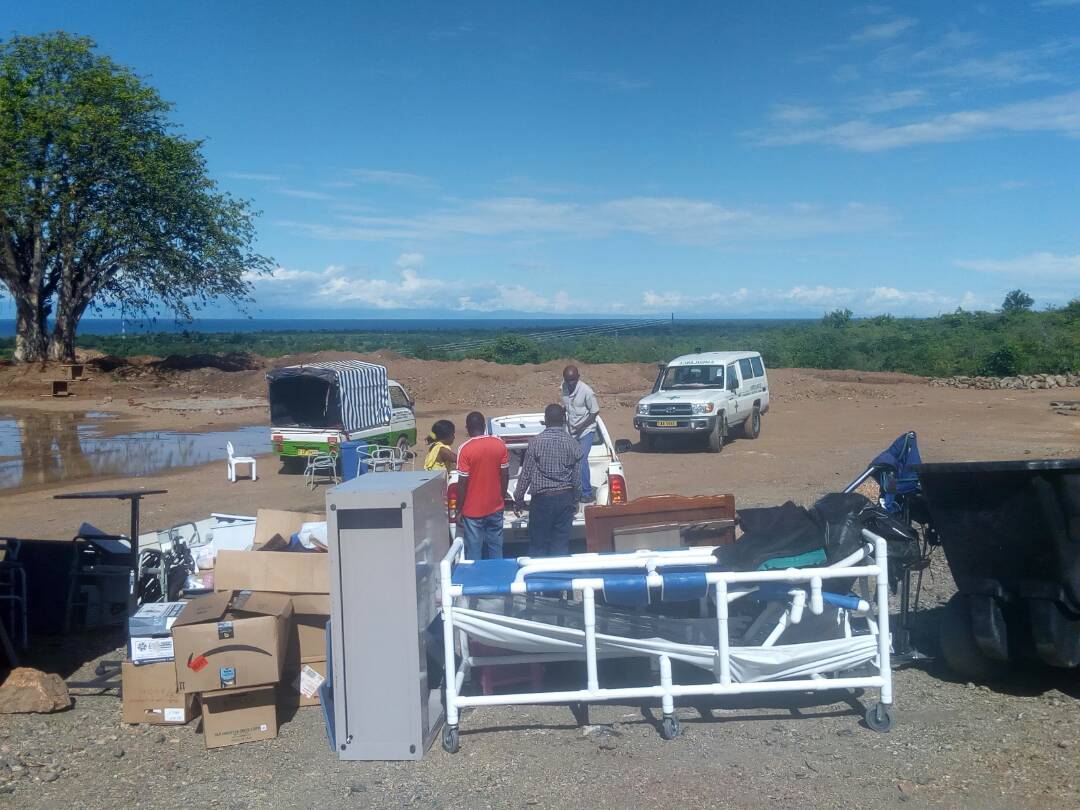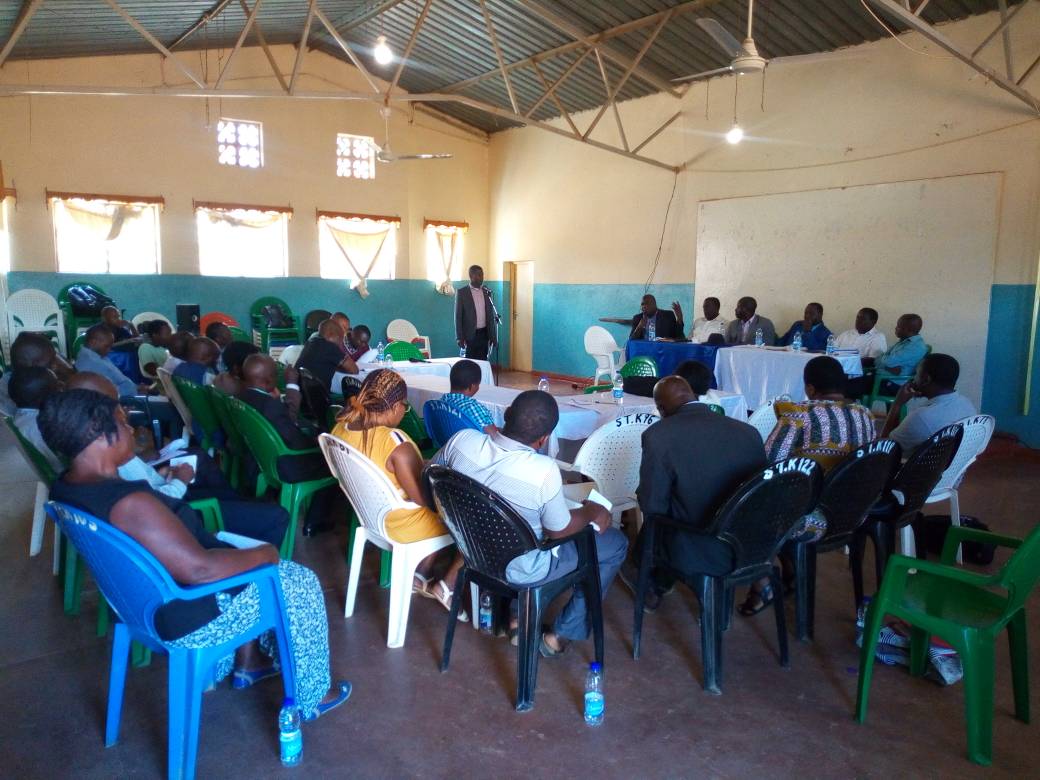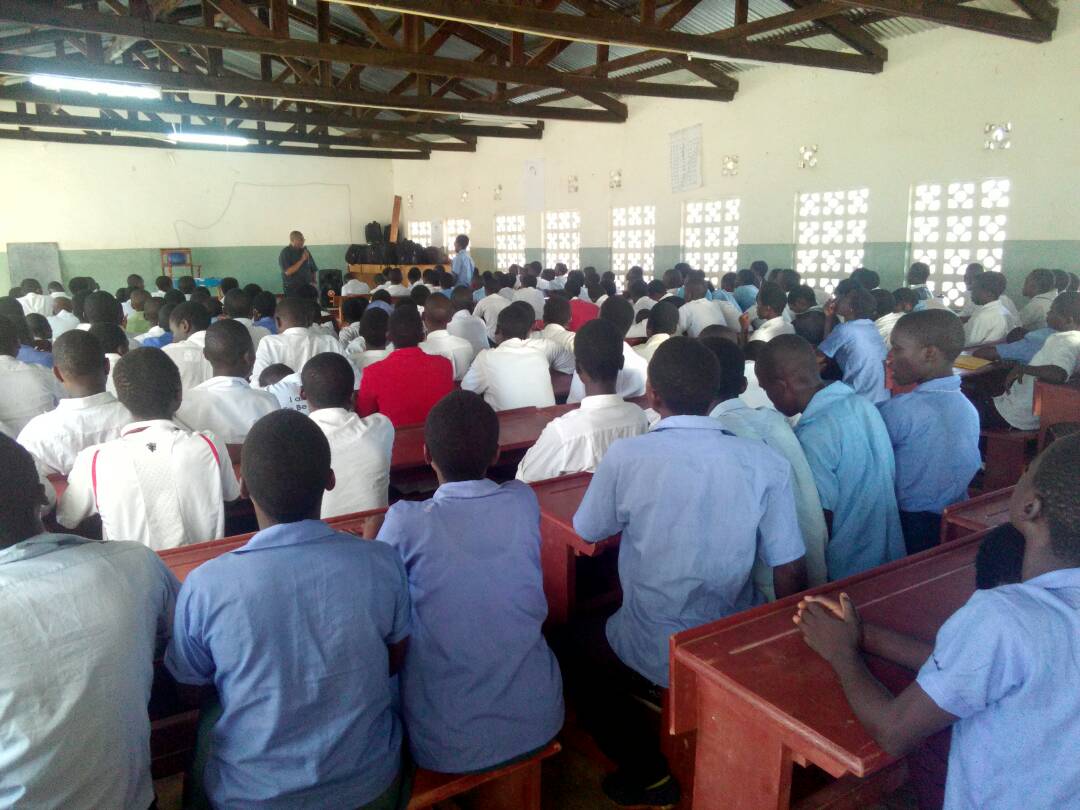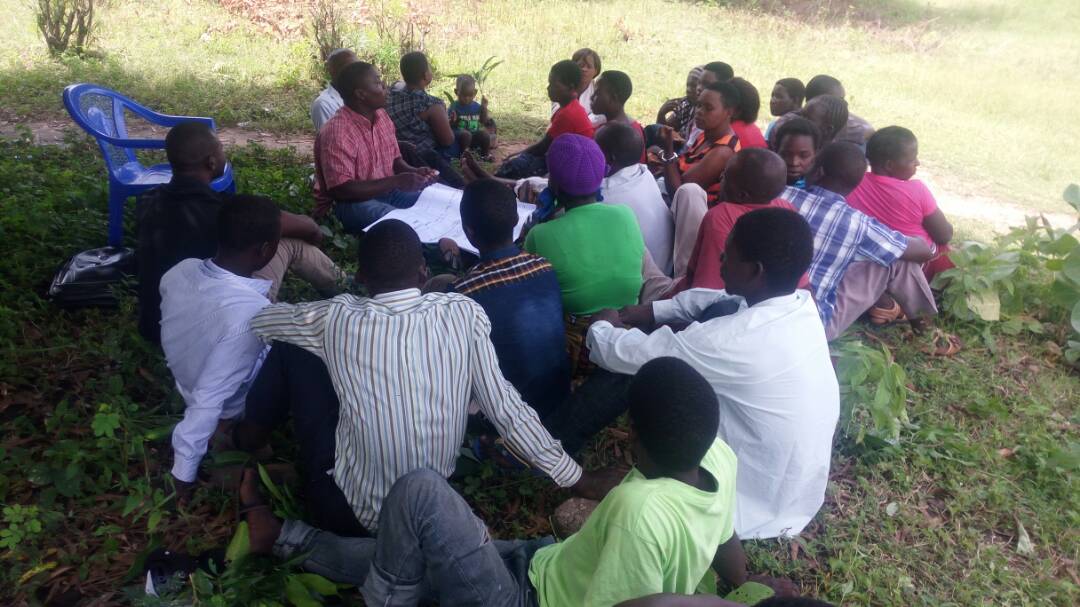Medical Missionaries Donate Assorted Pieces of Medical Equipment to Karonga Diocese
By Vincent Shaba
The Diocese of Karonga recently received a timely donation of assorted medical equipment from a US based Catholic Charity Medical Missionaries.
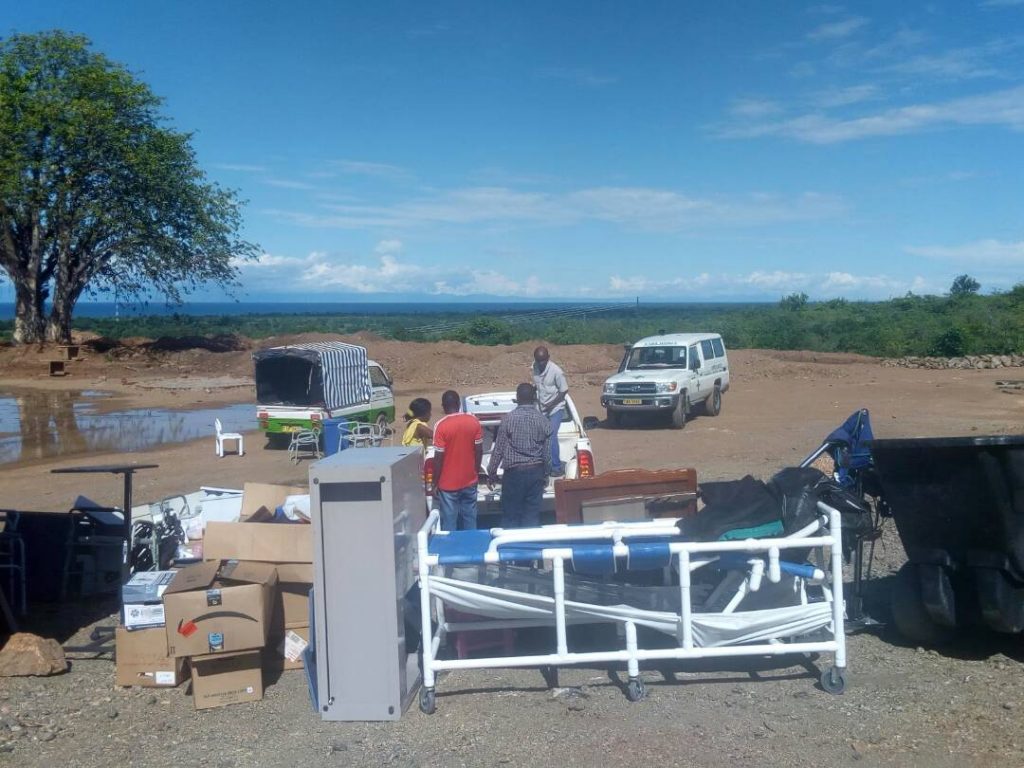
A container carrying the medical equipment arrived in the country in March this year. Among the many pieces of medical equipment were oxygen concentrators, nebulizers, and bed pans. In addition the container carried single use materials like syringes, gloves and catheters of various sizes.
The Medical Missionaries donated the items at the request of the Bishop Martin Anwel Mtumbuka of the Diocese of Karonga when he visited United States of America last year. The shipping cost was paid for by the Mathile Family Foundation, who also paid for the construction of St Mary’s Girls Secondary School.
These items have been distributed among Catholic health institutions in the Dioceses of Karonga and Mzuzu. Among the beneficiary health facilities in Karonga Diocese are Kaseye, St. Anne’s, Chisenga, Atupele and Hope Clinic.
Most of these facilities are situated in remote area where people in catchment area have low household income hence services are at times rendered on credit or for free due as most people cannot afford the services.
Thus donation has come at the right time as these facilities have a huge demand of such equipment.
Senior Chief Kameme Pushes for Wide Community Pre-Budget Consultations
By Vincent Bwinga (Justice and Peace)
Senior Chief Kameme of Chitipa District has advised the health sector in the district to widely consult communities in the budget formulation process as one way of promoting transparency and accountability in the sector.
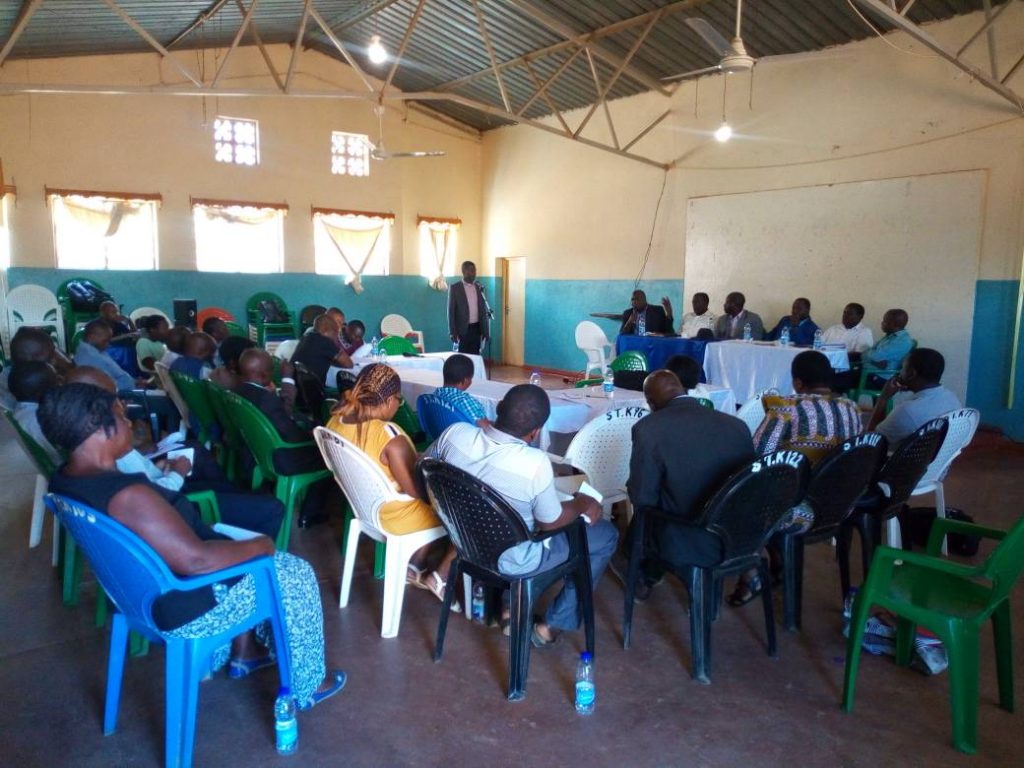
Speaking during a panel discussion held at St Kizito Conference Centre in Chitipa, Senior Chief Kameme said there is information gap between communities and health service providers which forces communities to lose trust on how funds are spent at district level. He attributed this to limited community participation in the formulation of the budget although this is guaranteed by the law.
Senior Chief Kameme urged the council, in general and health sector in particular, to effectively conduct pre-budget consultations and dissemination of the final budget for the communities they serve to be fully aware of what to expect and demand accountability on the same.
Speaking during the panel discussion, District Environmental Health Officer, Sam Ngwira, acknowledged the information gap on the health budget. He attributed this to lack of enough funds to conduct pre-budget consultations which forces them to skip some steps in the budget preparation process. As such the community consultations are not widely done.
“This year pre-budget consultations for 2018-2019 were done in three traditional authorities (Misuku, Wenya and Nthalire) with support from CCJP. We also disseminated 2017-2018 financial reports in the same areas where they are implementing a health governance project,” said Sam Ngwira.
“Going forward, as one way of bridging the information gap, the District Health Office will make sure that quarterly financial reports are simplified and shared in service meetings of sector heads, full council and also disseminated to health facilities,” the District Environmental Health Officer further said.
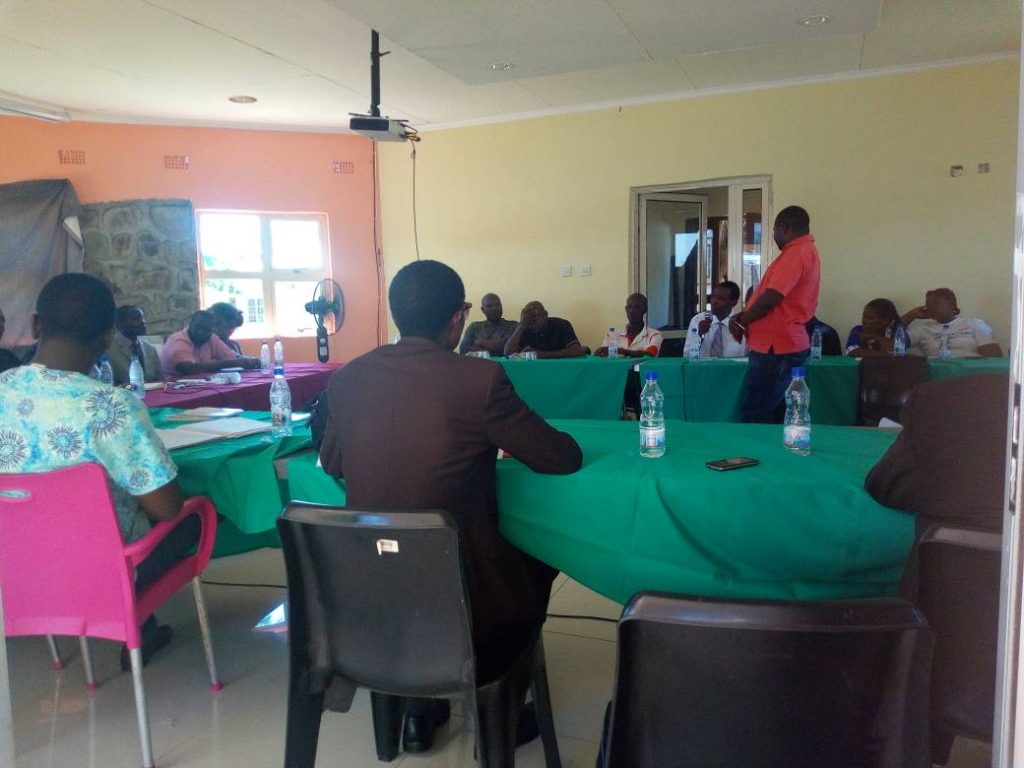
A similar activity was held in Karonga at Manguzi Lodge where it was revealed that despite pre-budget consultations being done in all traditional authorities, the health sector does not go back to the community to share the final budget.
Karonga District Health Officer (DHO) Doctor Phinias Mfune admitted that while this is true. He, however, said this is the case because some people are not doing their job. He promised to use noticeboards in the health facilities to share budget information.
District Commissioner for Karonga Richard Hara expressed the need for training councilors in the district to take a leading role in sharing information from the council with their respective communities. Hara also pointed out that the health sector is facing numerous challenges because health budget is not fully devolved and the health sector funding allocation in the district does not match with the population; hence some gaps in service delivery.
The panel discussion was organized by Justice and Peace Desk of Karonga Diocese with funding from Open Society Initiatives for Southern Africa (OSISA) on “Promotion of High Quality, Accountable and Responsive Public Health Services Project.”
Vicar General of Karonga Diocese Urges Catholic Youth to be Exemplary
By Joseph Nyondo & Patricia Kimangira
The Vicar General of Karonga Diocese, Monsignor Denis Chitete, has urged Young Christian Students in the Diocese to set a good example among their fellow youths by developing deep love for prayers and desisting from immoral behaviour.

Monsignor Chitete said this at St Joseph the Worker Cathedral on the sidelines of the Young Christian Students’ Rally during the Holy Week.
Monsignor Denis Chitete, who is also the Moderator of St Joseph the Worker Cathedral Parish, said lack of deep rooted faith is the root cause of bad behaviour among young people. He urged the young people to use rally as an opportunity to develop their spiritual life which will in turn foster positive behavior in their lives.
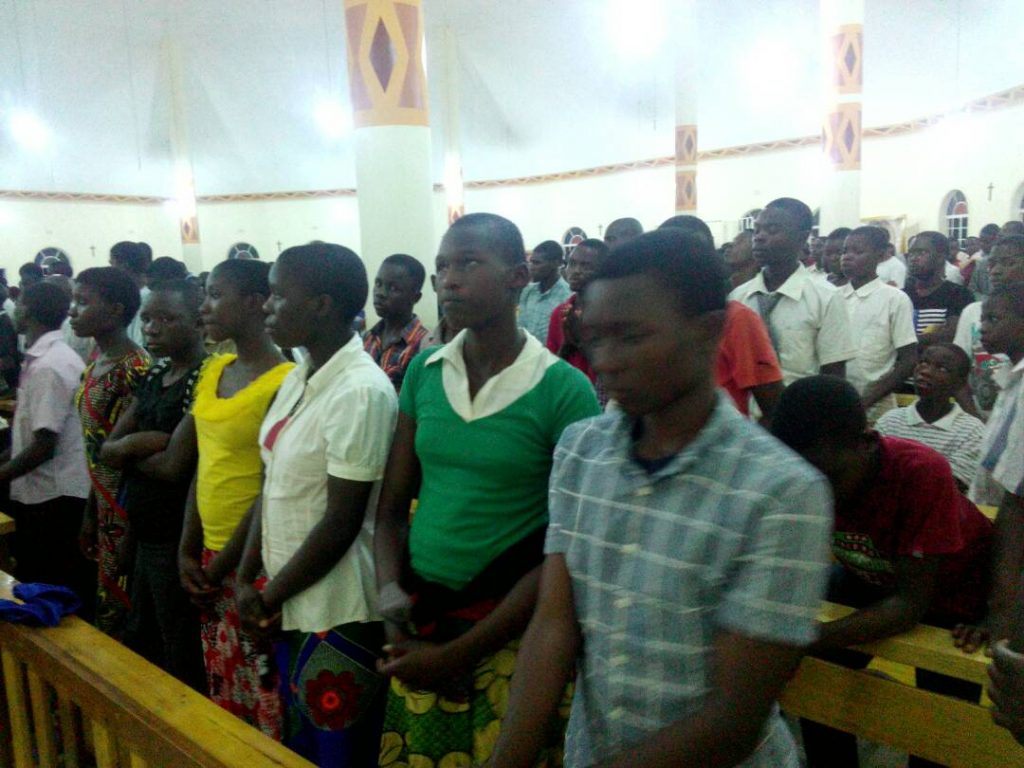
The Vicar General said the lessons targeted learners from boarding secondary schools, and others who missed the previous youth rally, since they also need lessons to guide them grow spiritually.
The YCS Rally attracted 219 students from Chaminade, Maghemo and Karonga Girls secondary schools; Baka and St Monica community day secondary schools and Matema Private Secondary School.
Under the theme ‘Revamping YCS in Schools’ participants were called upon to reflect on different topics aimed at strengthening their spiritual life and equipping them with necessary life skills to grow physically.
Among the topics were: seasons of the Church with emphasis on Easter Triduum, vocations, role of the youth in shaping the society, behaviour change among the youth, career guidance and sexual and reproductive health.
Karonga Diocese’s Income Generating Activities Promising
By Moses Raymond Kamanga
In the spirit of being a self-reliant Church, the Diocese of Karonga embarked on some activities to generate income to enable the Diocese operate with minimum external support. This dream is slowly being realised as most of the activities put in place are giving positive indicators.
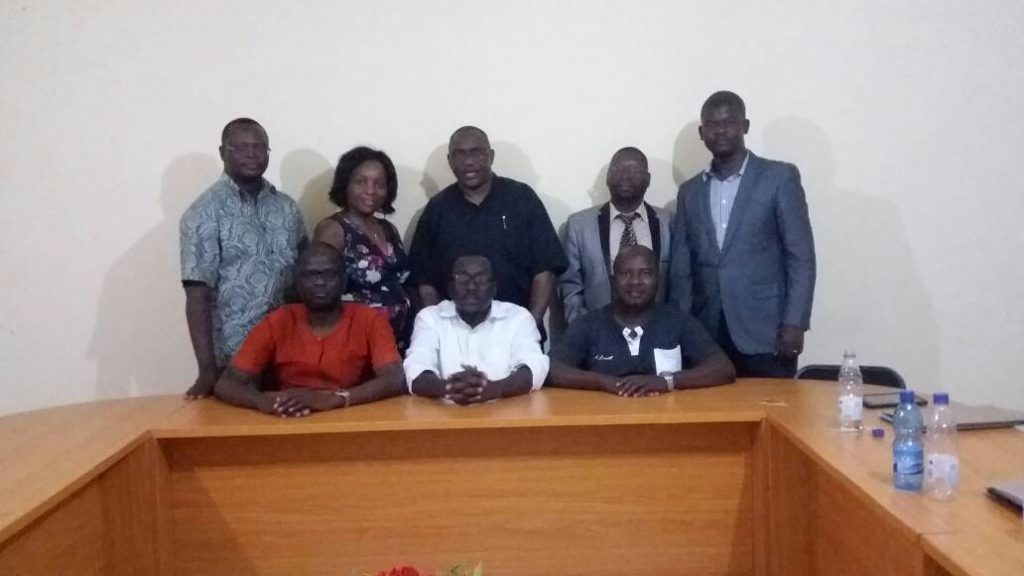
According to the chairperson of the investments sub committee within the Diocesan Finance and Investments Council, Mr Israel Chavula, all of the income generating activities of the Diocese are performing well. Mr Chavula, who is the Public Relations Officer of Standard Bank, cited the Diocesan Filling Station in Chitipa, Coffee Farm in Misuku, Chipunga multi-agricultural farm, and Uledi Cattle Farm as some of the diocesan investments that have a promising future.
” Last time we met as the finance and investment council we gave targets to each income generating activity. Today we have gathered to evaluate how each IGA has performed. From the reports we have received, I can assure you that all our income generating activities have performed above the limits we set”. Said Chavula.
“None of the IGAs has let us down,” he re-affirmed.
Commenting on the same, the Vice Chairperson of the Finance and Investment Council, Monsignor Denis Chitete, hailed the Council for all its efforts that are geared towards making the Diocese self-reliant.
He described the Council as the vital third arm of the integral development of the Diocese. He did not mince words on the necessity of the Finance Council saying there is not Pastoral work or work of charity/ love (Caritas) that can function perfectly without finances.
These sentiments came after a daylong Financial and Investment Council meeting which took place on the 7th of April at Bambo Zutu House. Present at the meeting were the Vicar General and Vice Chair Person of the Council; the Pastoral Secretary, Fr. Joseph Moloka Sikwese; Mr. Mwawi Shaba, the Caritas Secretary; Mrs. Lusungu Kacheche Zinkambani, Mr. Daniel Zimba, Mr. Israel Chavula, Mr. Francis Gondwe and Mr. Maupo Kumwenda, the Diocesan Account. Absent was Fr. Silwamba the Director of Finance Investment and Administration who is following a Master’s Degree programme at Mzuzu University.
Caritas Commission Facilitates Community Needs Assessment at Mwenelondo
By Vincent Bwinga (Justice and Peace)
The Diocese of Karonga through Caritas Commission on 4th March 2018 facilitated a community needs assessment at Mwenelondo in the area of Senior Group Village Headman Mwangolera in Karonga District to determine current challenges and the paint a picture of the desired conditions for youth.

This was in response to the prevailing acts of violence perpetrated by young people in the area forcing many people, especially the elderly to live in fear.
The needs assessment employed a Focus Group Discussion (FGD) methodology to lead the participants into analyzing their own problems and propose solutions. During the FDG young people, men, women and traditional leaders unanimously expressed that limited access to economic opportunities is the main factor that push young people into violence.
They said in the area there is a greater number of young people who have nothing to do due to lack of employment opportunities, limited access to capital to start businesses. There are high poverty levels among many youth which lead them into violence, theft, drug and alcohol abuse and prostitution due to frustration.
Maneno Phiri 30 from Sadala village said that many youth in the area lack necessary skills to warrant them decent employment. He said this situation forces young people to spend their time in jobless corners where violent ideas breed.
Citing an example of Mwanjabala Jobless Corner around Karonga Boma, Maneno said it is possible for young people to change once they have been given opportunities.
“We used to have jobless Corner at Mwanjawala Boma with youth who were very violent but when those who used to gather at this place found something to do, we no longer hear about violence in Mwanjawala,” said Maneno.
“We need to have a vocational training center where we can acquire different skills and at least have something to be doing to sustain our lives. It will be good also for young people to have access to capital to venture into small businesses,” said Maneno.
On the ways to end hunger in the area, community members said they are capable of engaging in serious agricultural activities once they have access to farm inputs and irrigation equipment. Mwenelondo is very close to Lake Malawi, a large body of fresh water.
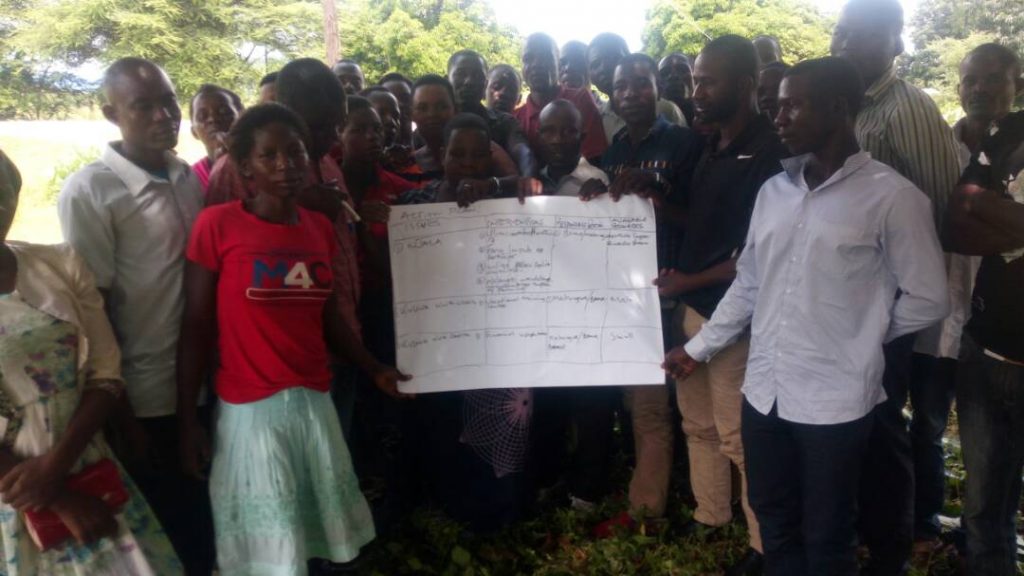
During the exercise, community members developed an action plan reflecting the steps to be taken to address some of the challenges they are facing.
Village Headman Kasote commended the process and methodology used by the Diocese of Karonga to interact with all groups of people in the community. He expected high level commitment from community members in the implementation of the planned activities.

